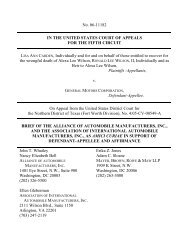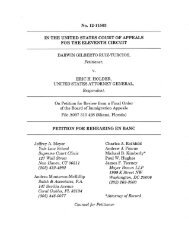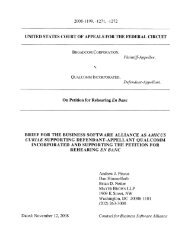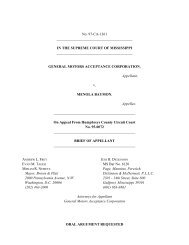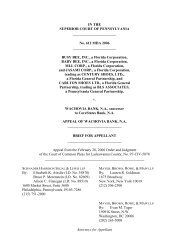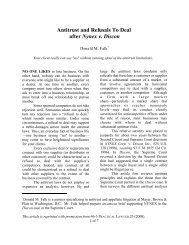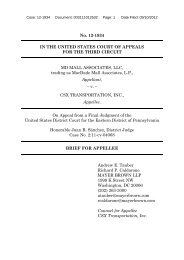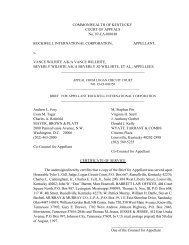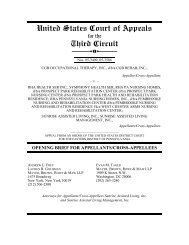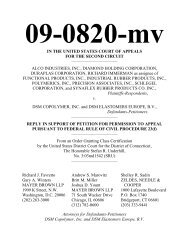No. 5-99-0830 IN THE APPELLATE COURT OF ... - Appellate.net
No. 5-99-0830 IN THE APPELLATE COURT OF ... - Appellate.net
No. 5-99-0830 IN THE APPELLATE COURT OF ... - Appellate.net
Create successful ePaper yourself
Turn your PDF publications into a flip-book with our unique Google optimized e-Paper software.
OEM part construction “had some distinct safety implications” (R. 5775) — even though he<br />
admitted that he had never performed a single safety test of a non-OEM part and had no<br />
background in safety design and testing at all (R. 5760, 5784, 5816, 5819). Plaintiffs’<br />
bodyshop witnesses also testified to their “concerns” that non-OEM parts “maybe” are<br />
unsafe. R. 4507.20, 5922, 6627-28, 7053. Like Anderton, the bodyshop witnesses had no<br />
expertise in safety analysis, nor any factual basis for asserting that any non-OEM parts were<br />
not as safe as their OEM counterparts.<br />
Despite the fact that millions of non-OEM parts have been on the road for more than<br />
a decade, plaintiffs failed to adduce any evidence that anyone has ever been injured due to<br />
defects in any non-OEM part, let alone a study suggesting a safety problem with non-OEM<br />
parts that is sufficiently universal to justify condemning them all. Lacking any factual<br />
foundation or practical experience on which to ground their opinions that any — let alone<br />
all — non-OEM parts are unsafe, plaintiffs’ experts and lay “opinion” witnesses simply<br />
proclaimed it to be so. A purported expert’s mere say-so, however, is plainly not enough to<br />
support any judgment, much less the massive judgment in this case. See Kleiss v. Cassida,<br />
297 Ill.App.3d 165, 174 (4th Dist. 1<strong>99</strong>8). Even “[a] supremely qualified expert cannot waltz<br />
into the courtroom and render opinions unless those opinions are based upon some<br />
recognized scientific method and are reliable and relevant.” Clark v. Takata Corp., 192 F.3d<br />
750, 759 n.5 (7th Cir. 1<strong>99</strong>9).<br />
* * * *<br />
That plaintiffs’ proof of universal inferiority rested on so weak a foundation<br />
demonstrates not only why the judgment cannot stand, but why the class must be decertified<br />
-95-



